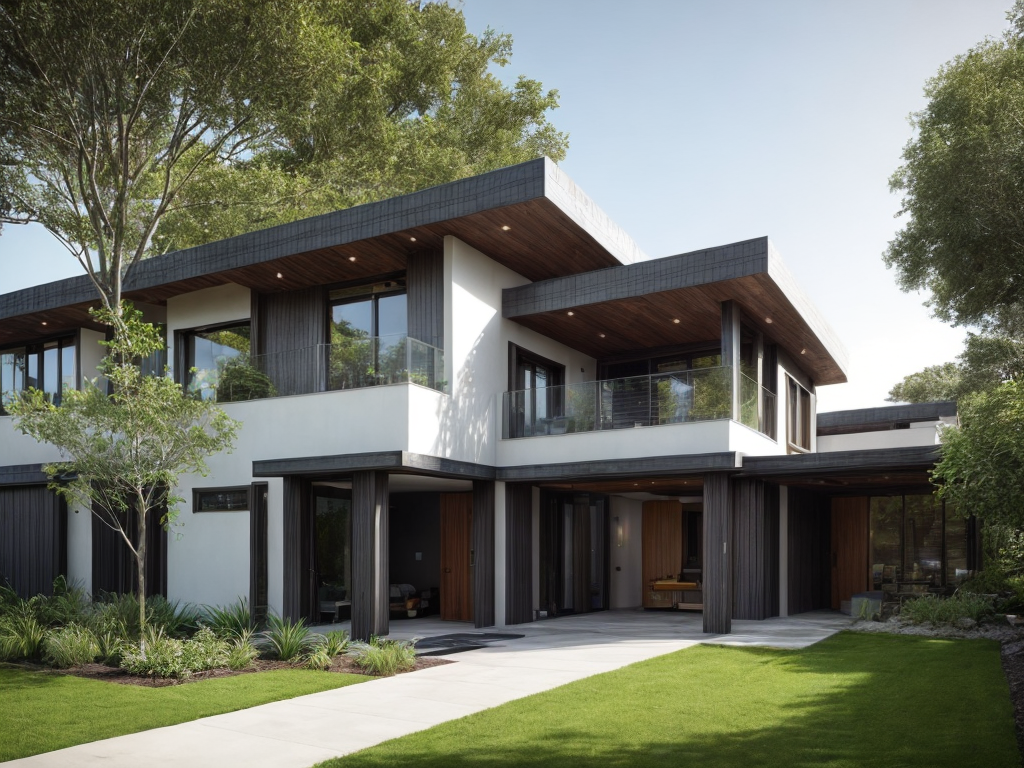
Did you know that building a sustainable home involves more than just choosing energy-efficient appliances? There are key considerations that you may not be aware of, but are crucial to creating a truly sustainable living space. In this guide, we will explore the essential factors that you should keep in mind when embarking on the journey of building a sustainable home. From location and site selection to energy efficiency, sustainable materials, water conservation, and waste management, we will provide you with valuable insights and practical tips to help you make informed decisions. By understanding these key considerations, you can create a home that not only benefits the environment but also promotes a healthier and more sustainable way of living.
Key Takeaways
- Evaluate soil quality, water availability, and nearby natural resources.
- Implement smart design and technology to enhance energy efficiency.
- Use eco-friendly construction materials and opt for renewable resources.
- Regularly inspect and repair leaks, install water-saving fixtures, and implement waste management practices.
Location and Site Selection
When choosing a location and site for your sustainable home, it is important to carefully consider various factors. Site evaluation is crucial in determining the suitability of the land for your sustainable home. Assessing factors such as soil quality, water availability, and natural resources nearby will help you make an informed decision. Additionally, it is essential to evaluate the environmental impact of your chosen location. Consider the proximity to transportation hubs, schools, and workplaces to reduce the carbon footprint of commuting. Look for sites with existing infrastructure and utilities to minimize resource consumption. By choosing a location with low environmental impact, you can contribute to the well-being of the community and serve others while enjoying the benefits of a sustainable home.
Energy Efficiency
Maximize energy efficiency in your sustainable home by implementing smart design and technology. Incorporating renewable technologies and insulation techniques will help you reduce your energy consumption and decrease your carbon footprint. When it comes to renewable technologies, consider installing solar panels on your roof to harness the power of the sun and generate clean, sustainable energy for your home. Additionally, explore the option of using geothermal heating and cooling systems, which utilize the earth’s natural heat to regulate the temperature in your home. Insulation is another crucial aspect of energy efficiency. Ensure that your home is properly insulated to prevent heat loss during the winter and minimize heat gain during the summer. By implementing these energy-efficient measures, you can create a more sustainable and environmentally-friendly home.
Sustainable Materials
How can you incorporate sustainable materials into the construction of your home? When it comes to building a sustainable home, using eco-friendly construction materials is essential. Green building materials not only minimize the negative impact on the environment but also contribute to a healthier living space for you and your family. Look for materials that are made from renewable resources, such as bamboo or reclaimed wood. Opt for insulation made from recycled materials, like recycled denim or cellulose. Consider using low VOC (volatile organic compound) paints and finishes to improve indoor air quality. Additionally, choose energy-efficient windows and doors that are made with sustainable materials. By incorporating these sustainable materials into your home construction, you are not only making a positive impact on the environment but also creating a healthier and more efficient living space for yourself and future generations.
Water Conservation
To maximize water conservation in your sustainable home, regularly inspect and promptly repair any leaks. Leaks can waste a significant amount of water over time, so it’s crucial to address them as soon as possible. In addition to leak prevention, there are other effective ways to conserve water in your home:
-
Rainwater harvesting: Install a rainwater harvesting system to collect rainwater from your roof. This water can be used for tasks like watering plants and cleaning, reducing your reliance on treated water sources.
-
Greywater reuse: Implement a greywater system that captures and treats water from sources like sinks, showers, and laundry. This treated water can then be used for non-potable purposes such as toilet flushing and irrigation.
-
Efficient fixtures: Replace old, inefficient fixtures with water-saving ones, such as low-flow toilets and faucets, to minimize water waste without sacrificing performance.
Waste Management
For effective waste management in your sustainable home, ensure regular disposal and recycling practices are implemented. Implementing composting systems and participating in recycling programs are key steps to reduce waste and promote sustainability. Composting systems allow for the decomposition of organic waste, such as food scraps and yard trimmings, turning them into nutrient-rich soil for your garden. By diverting these materials from the landfill, you not only reduce methane emissions but also create a valuable resource for your plants. Additionally, participating in recycling programs helps to minimize the amount of waste that goes to landfill, conserving resources and reducing the environmental impact of manufacturing new products. Remember, by incorporating these practices into your waste management routine, you are actively contributing to a more sustainable future.

